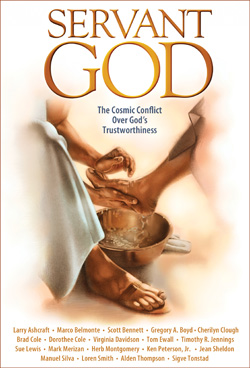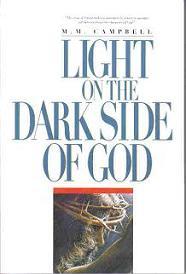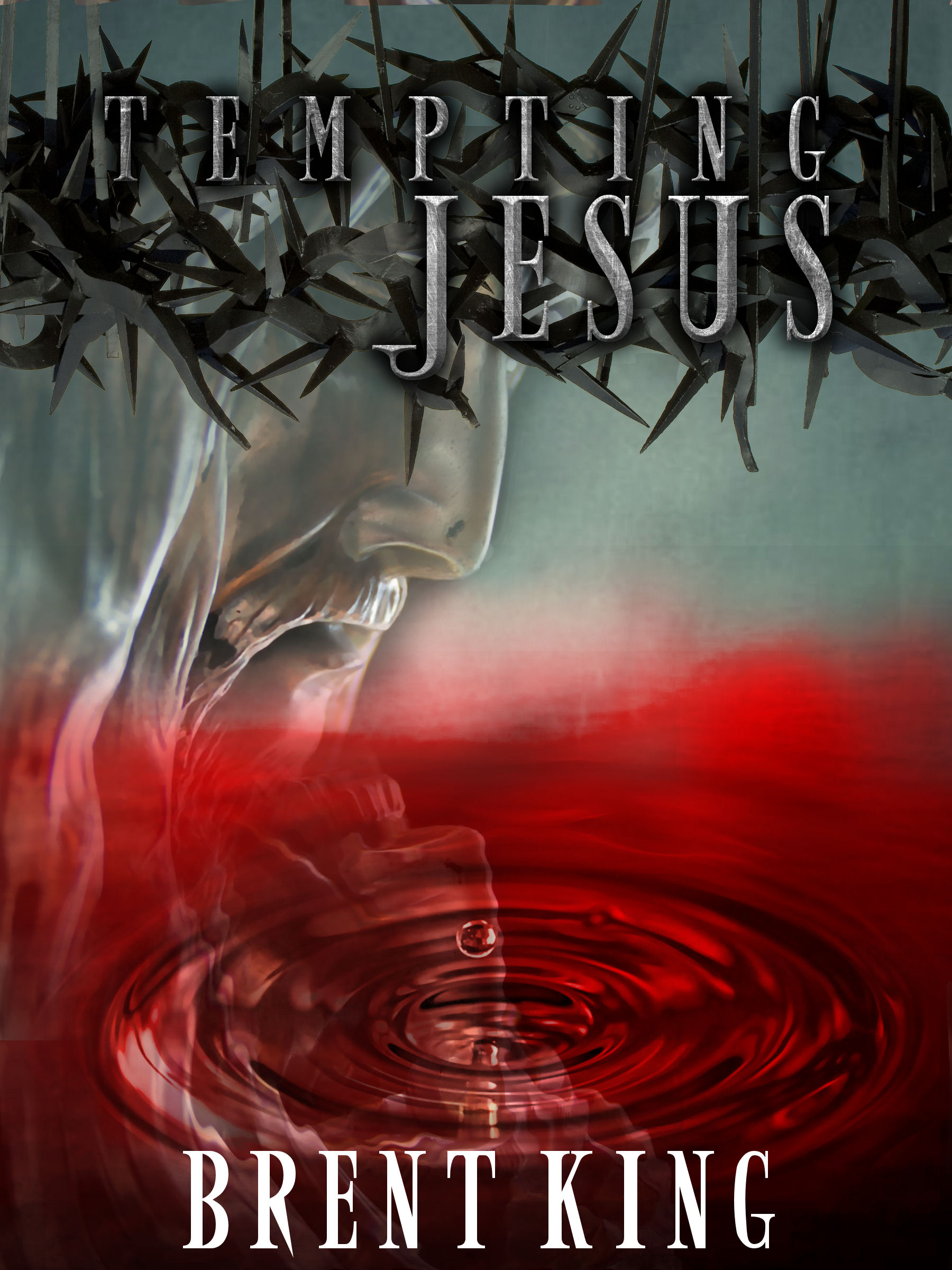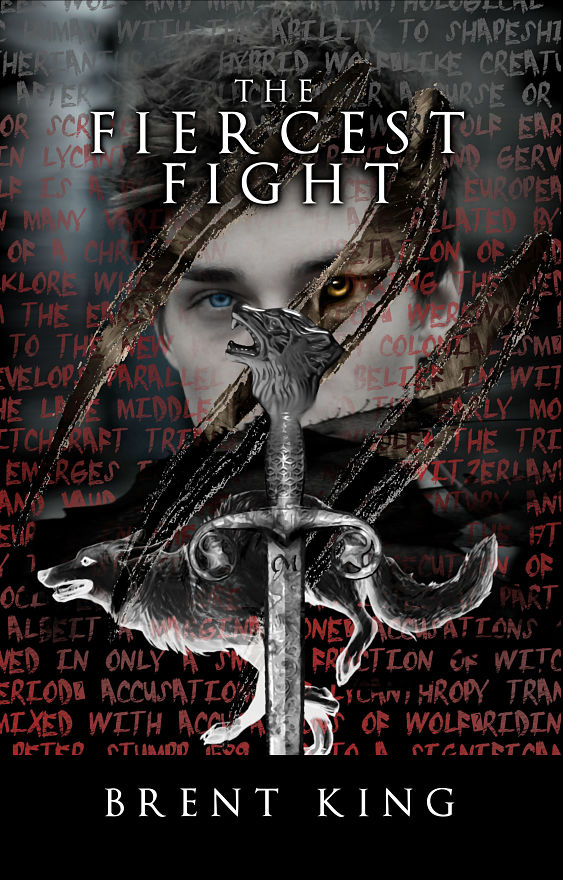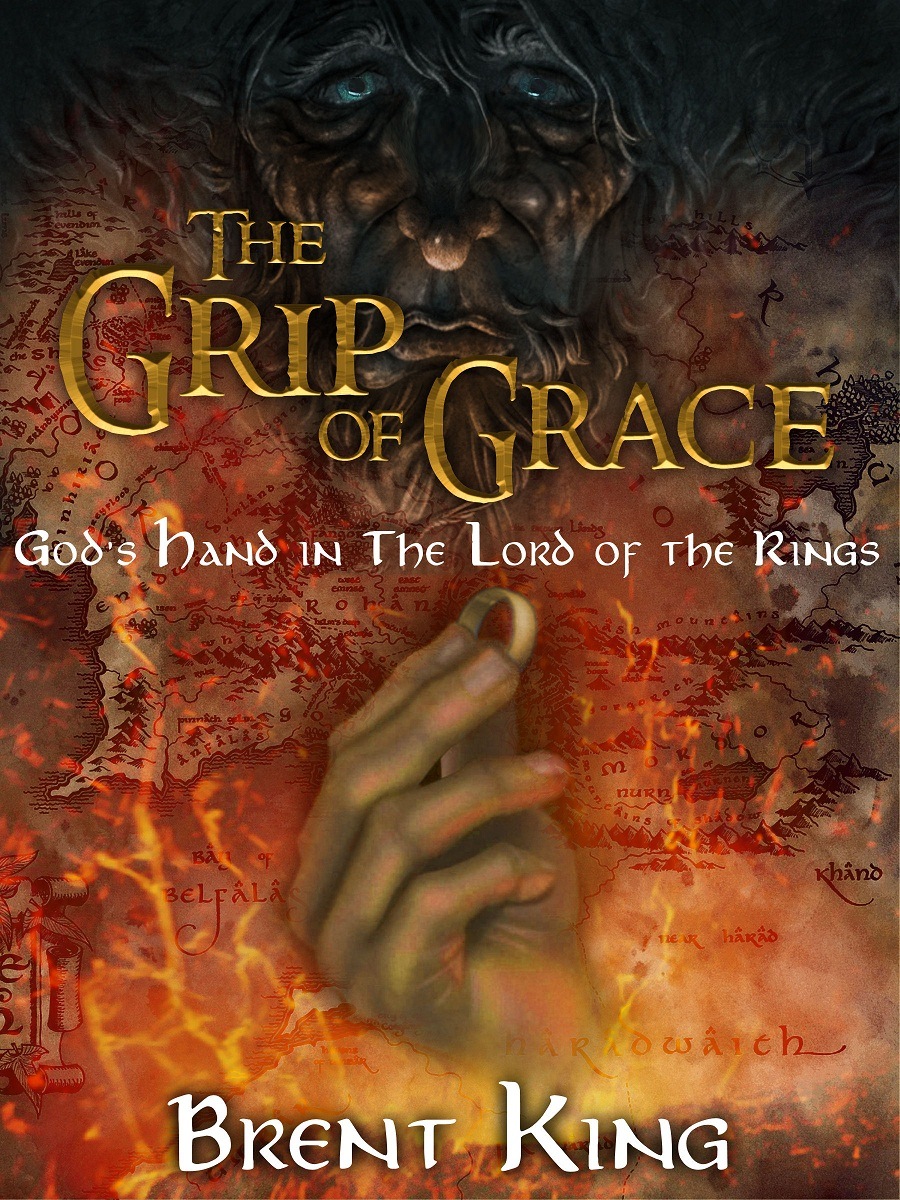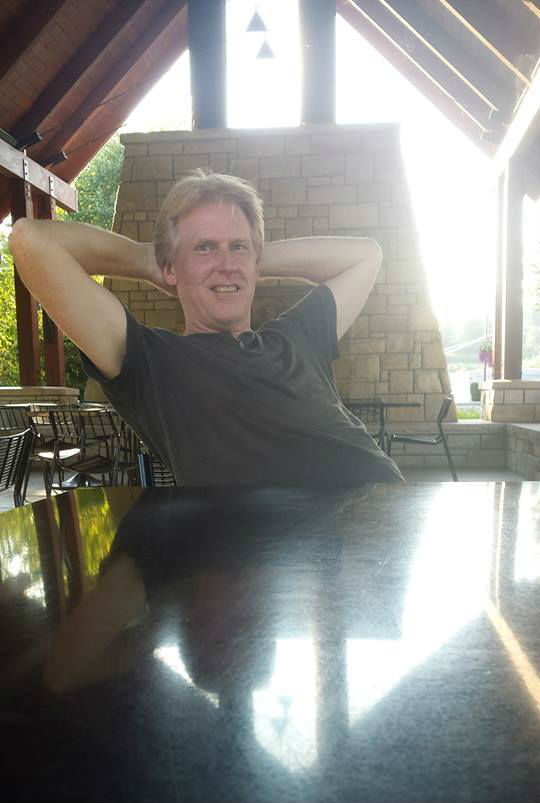The Darkness of God: An Easter Story
“The morning! The morning! I am caught by the morning, and I am a ghost!”
– CS Lewis, The Great Divorce

Darkness. I have often pondered darkness. It attracts evil like a magnet. Why shouldn’t it? It’s easy to hide in the dark, if you have something to hide—and most of us do. It beckons the bad guys—or at least the bad parts in each of us—and shrouds a host of foul creatures. I lean against the edge of the pier and gaze at the city of lights shimmering across the water from a dozen anchored freighters off the docks of Astoria. The dark doesn’t seem so scary when the moon shines brightly. Where does the bogeyman go on a midsummer night? Why does he cease his haunting on a night like tonight when the stars twinkle over the river and the wharves are wrapped in dark beauty?
“How can something so dark be so beautiful?” I muse aloud. With such a bad reputation, the darkness can hardly be one of those good and perfect gifts that come down from the Father of lights. A foghorn blasts through the waterfront. I lean over the railing and scan the darkness for a looming ship.
“Excuse me.”
I jump and nearly take a swim.
A tall man in an overcoat with a scarf appears in the dim light. “I didn’t mean to startle you,” he says, “but I couldn’t help overhearing your question.”
I peer at the man and find my voice. “You mean about the beauty of darkness?”
“Yes.” He extends his hand, and his eyes glimmer, reflecting the river lights. “The name is Mike, Captain Mike,” he says. “I’m a river pilot. I guide ships across the bar.”
I grip his hand. “Captain Mike,” I say, warming to the glimmer. “Nice to meet you. I’m Tauren, and I can’t help but think thoughts like that when I wander through these parts. There’s so much mystery and paradox in the world.”
“We think alike,” he says. “Would you like to join me for a hot drink? We could take in the lights from a dark warm corner and maybe find some answers. Like the good book says, there is wisdom in the meeting of minds. The drinks are on me.”
I can’t resist. Who doesn’t like a hot drink and this gentleman has a good vibe. We settle into a quiet nook with a pot of tea and a killer view of the river.
“Don’t we have to start with the light?” the captain asks, as the waitress sets a couple of steaming bowls of soup on our table. “It seems like light has a critical relationship with darkness.”
I slurp my tea. “What do you mean?”
He leans forward. “I mean, doesn’t the apostle John say that God is light and in Him there is no darkness at all?”
“Yes,” I say. “I suppose that’s the dilemma of my question. If darkness doesn’t dwell in God, then how can it be beautiful?”
“That is a paradox,” he says. “Especially since the psalmist says that God is everywhere, even in the deepest, darkest hell.1”
I slurp my tea again. What else can I do? I certainly don’t have the answer to such a riddle.
The captain’s eyes twinkle as he sits back and dips a chunk of garlic bread in his soup.
“If you know the answer to the riddle,” I return his twinkle and pour a bit of cream into my tea, “then you know more than I do, and I’ve spent hours walking along dark riverfronts contemplating it. It’s a tough one. I mean, God is everywhere. He is reality in its totality. Yet it seems like He also has a total understanding of things that aren’t real: chaos and darkness. How can this be when He is only light and that light burns away darkness wherever it’s found?”
The captain chuckles. “Who can plumb the depths of the mysteries of the Almighty, aye? This one, however, may be a little easier to understand than some. Look no further than an egg.”
I tilt my head and crack a grin. “An egg?” I raise an eyebrow.
“Yes,” he says, “an egg. But in order for it to make sense, we have to go back and look at God’s predicament when men disagreed with Him about how reality worked. Fear destroyed trust and Adam and Eve were soon running because they thought God was going to kill them. Believing lies about God filled them with darkness so deep that the light of Truth—brighter than the sun—indeed would have killed them if God hadn’t done something—and done it quickly. The light of God’s holiness would have snuffed them out as fast as light extinguishes darkness. How could God create a place where men could violate elemental design law and not die instantly? Where could They—the Godhead—find a dark nook where men could survive by absorbing truth in amounts that wouldn’t kill them until they could tolerate its light once more?”
“Ah yes,” I say. “It’s dark inside an egg.”
“Or a womb.” The captain nods. “Yup, an egg is a great symbol of God’s solution. You’ve heard Saint Paul say that Jesus became sin for us.2 Well, He did. Don’t get me wrong. Paul is not saying that Jesus became sinful. He’s saying that He became sin by taking on Himself the sure results of our sin: darkness, death, and non-existence. He became our eggshell, the dark eddy in reality that protects us. In a shocking move that no one will ever fully understand, Jesus became the darkness that shields us from the life-destroying chaos of too much light. Jesus became the Darkness of God.”
“I guess if anyone could make darkness beautiful, Jesus could.”
“Yes, and there’s your answer.” The captain snuffs out our table’s votive candle. “We don’t normally think of darkness as our friend, a place where we can grow and mature until we are ready to break into the light.”
“No,” I say. “I’ve never thought of it that way.” I retreat into my quiet space and turn the novel concept over in my mind while the captain relights the votive.
“I was afraid of the dark when I was little,” I say at last. “It’s crazy to think that it’s not the dark that is our direst danger, but the light. Who would think that light, not darkness, is the greatest enemy of men?”
“It is counterintuitive,” the captain says. “At least in this world.”
“Okay.” I sit up straight and catch my new friend’s eye. “Let me see if I’ve got this straight. Reality can’t be bent to save men or angels. That means that God had to make a temporary bubble in reality—a grace bubble, if you will—where design law doesn’t immediately apply, where creatures can break the rules of being and not die instantly. That grace bubble surrounds us with a protective shroud of darkness—like an eggshell—so that we can bear our nakedness, our fear, and our shame. There we have a chance to heal and mature in a place where the light won’t kill us.”
“You got it. I like your analogy: a grace bubble. A magical bubble to save men.” The captain strokes his beard. “It shares space well with the egg. And you nailed the point of it: it buys enough time for men to decide whether they will mature or not. It’s all about viability, about being able to bear the light of reality.”
The captain gazes out into the blackness of the river and muses, as if to himself, “He paid a pretty stiff price for that grace bubble. . .”
I dare not speak for a minute. “You’re talking about the price of darkness?”
“Yeah, no one will ever know the full price. When the lights went out in Eden, when the temperature dropped, and Adam and Eve’s radiant robes disappeared, the incarnation of Jesus had already begun. Jesus—who is the Light—was in that darkness, rather, became that darkness. The cross, where we catch a glimpse of the horror of darkness, is but the tip of the iceberg. The agony that, from its very inception, sin has brought to the heart of God lurks with monsters and chaos in the abyss below it. Jesus was already paying the price of darkness in Eden: a Lamb slain from the foundation of the world.”
“But you just said,” I point to the flickering candle on our table, “that darkness can’t hold back the light. And you were right. Just the flip of a light switch in a dark room proves that.”
“It’s true, the wall of darkness that breaking trust with God builds in the hearts of men has no power to stand against the light of reality. It would vaporize them in an instant, like moths to a flame. Yet a dark-less God is big enough to walk into the non-existence of darkness and hell,1 to warp reality itself, and to build a shady place to protect those They love. God alone can give darkness the substance to stand against the light, though ability shouldn’t be confused with ease.”
I stare at the captain. “That doesn’t help,” I say.
The captain smiles and nods. “We’re not going to understand it outside of a natural phenomenon,” he says. “So let’s get back to the eggshell. The outside of the eggshell experiences a light that humans cannot bear, but the inside—where God looks like us—is dark. Here, the physical world is mortal, shadowed, and opaque only because Jesus became mortal, shadowed, and opaque. Here the cemented darkness of the eggshell wounds and tortures God, splintering Their hearts with rigor mortis and death in the body of Jesus. The darkness that brought men back into communion with God has challenged the Holy Three in painful, eternal ways.
“But how could God even bear it?” I ask.
“We touched on that a minute ago,” the captain says, “when I said that breaking trust with God encased men in darkness. The short answer, then, is that God doesn’t sin. Said another way, They don’t break trust with each other or with Their creation. Faith can bear darkness and death because it is the primal spark of life, the surety that securely connects and animates all intelligent beings. St. Paul says that faith is the antidote to death because it can see through it.3 God is using the universal crisis of sin to show beyond a doubt that darkness—indeed, even death—cannot trump faith. The death of faith—or trust—was the death of men but the faith of Jesus is their life.”
“That’s the closest I’ve ever come to grasping the truth about darkness and death,” I say.
“The more we contemplate it, the better we understand. So,” a thousand wrinkles brighten the captain’s face, “just to see if you’ve got it, what single action defines darkness and destroys life?”
“Nothing like putting me on the spot.” I grin. “You shouldn’t make it so easy though—breaking trust.”
The captain chuckles. “My,” he says. “Keep walking that waterfront. It does you good! You got it: sin—or darkness—is actually the breaking of a living relationship as trust breaks down. This is deadly because covenantal relationship is the definition of reality.4 I think you might actually be ready for the climax of this tale of darkness.”
“I’m not sure,” I say.
“Well…” The captain slid the candle from the edge of our settee to the center. “When Jesus became men’s darkness it tested the very structure of reality to its limits. The Father is un-darkened light and now the experience of Jesus, the second member of the Holy Three, is darkness. The climax—a bottomless mystery—is quite possibly best envisioned in a barnyard chick’s unceremonious exit from an egg. The darkness must be broken for the chick to be released into the fulness of life. The protective, nurturing eggshell must be shattered or even a viable chick will die.”
My jaw drops, and I stare into the warm eyes of my friend. “But,” I say, “but that eggshell is Jesus!”
“And you’re surprised?” he asks.
I smile and run my fingers through my hair. Where did this sea captain come up with this stuff? “I’m peddling as fast as I can. It’s just that when a common eggshell becomes the cosmos, indeed, becomes Being itself, it’s a little unsettling.”
The captain sips his tea and holds my eye. “Can you think of any other way it might work? Based on everything we’ve visualized so far, the only possible way to free men from darkness and death—or to free Jesus for that matter, who now is that darkness—is through His faith in His Father unto death.5 And this faith in spite of the darkness. He must be broken—the eggshell must be broken—or nobody lives. The good news is what Jesus actually did in the face of every powerful illusion to deceive Him. He trusted His Father over His own desire for self-preservation, dove into the abyss of eternal death, and died.6 Such was the Via Dolorosa that cracked His body wide open and hatched men back into the light. The faith of Jesus—which led to the death of Jesus—is indeed the life of men.”
“Is everything okay here?” The words of the waitress break into my struggling mind.
“Maybe another round of garlic bread? Thanks!” I face the captain. “You’re still hungry, right? I just need a bit more to chew on to distract me from my vertigo. Darkness is starting to look like light and life like death.”
“It doesn’t have to be confusing,” the captain says. “You know the process well. It’s the process humans go through to become better people. We die to—or separate from—those things in our life that aren’t good so that we can move toward the things that are better. It’s a process of judgment and sacrifice: we judge God as good and ourselves as insufficient so that we are even of a mind to sacrifice our bad bits. This death is what aligns us with God and brings those who will engage it into the fullness of light and life. Men must die to live.”
I gaze into the flame between us. The captain was making sense. Death encompassed much more than I thought. “So really,” I say, “death—call it sacrifice if you will—is the process of redemption, of learning to trust God again.”
“Yes.” The captain twirls his spoon. “For us, it’s like learning how to love. It’s not optional. Every chick must play its part in cracking the eggshell.”
“But that eggshell is pretty strong,” I say. “For its thinness, it’s harder than some metals. How is a baby chick to bust through?”
“It isn’t. Our faithfulness, peck as we might, has no power to break it. It is our faithlessness that caused the death of Jesus, not our faithfulness. It is Christ’s faith in His Father that breaks the eggshell and opens the way home. It was broken in His own body.”
“Then why even peck?” I ask.
“By aligning ourselves with the faith of Jesus, we become part of His body and thus take part with Him in the process of hatching. Through the process of judgment and sacrifice we are privileged to collaborate in Christ’s work, pecking away at the eggshell as more and more light shines through the wounds in His hands and side—until the eggshell cracks. Thus, by participating with Jesus in His death—even though it is our birth that kills Him—the light dawns on us in a way that isn’t dazzling and deadly.”
“But what about those who don’t peck?”
“In Christ’s death, we see a picture of every man’s death and anticipate in a time when all eggshells will be split wide open, freeing all worlds from darkness. At death, every man’s experience blends with Christ’s, releasing them from the body of this darkness into the light. Only those who have valued the light enough to sacrifice and struggle toward it, peck by peck, will be able to bear it. Those who haven’t aligned themselves with Being in the days of gradually increasing light find themselves in a bad—” the captain squints at me and lays a hand on mine, “Tauren, are you okay?”
I nod, but my vision blurs, and I hide my eyes from my teacher. What would he think about me getting all choked up over a domestic chick?
“Don’t worry about it.” The captain hands me a napkin. “It’s the normal response to love. God loved the world when He created it by the word of Jesus, and Their love never missed a beat when They recreated it by the blood of Jesus. It’s worthy of a good cry.”
“I don’t know what came over me,” I say. “It’s silly. It’s just an egg and a chick and,” I dab my eyes with the napkin, “my understanding is so dark.”
“Hmmm,” he says. “That’s the kind of understanding I like. It’s part of the reason why an egg and a chick are there in the first place. Take another sip of soup,” he catches my eye with a wink, “and you’ll be okay.”
The blast of a ship’s horn rattles the window of our nook, and the dark bulk of a freighter towers above us on its way upriver. A coup d’état of clouds seize the moon, and our window shudders before a gust of wind.
“It’s still unnatural.” I shiver. “Whether Jesus brings beauty to it or not.”
“Yes,” the captain says. “It’s an anomaly in the fabric of reality to accommodate fallen men. And since violence can survive here, evil can seem to be what it’s not: stronger than good.” The gentleman scans our cozy corner. “In fact, evil can even seem like it is good. It’s a dangerous inversion.”
“I was thinking of that earlier.” I shiver again. “Since Jesus has embodied a way for consciousness to continue in a dark and unsustainable way it seems like it would be easy for us to conclude that the anomaly is the reality and that God is dark like this world; that God is dark like us. Don’t we all fall prey to that to some degree? I mean, what more do we have than our experience in this dark world to help us understand God?”
“That is why men need much more than darkness to endure. Darkness is only Phase One. It’s why the example of Jesus in our darkness—showcased by our Conscience—is so important. The faith of Jesus is the light through the darkness and death that, of necessity, surrounds us. It is the primal spark of life and—it bears repeating—it is death’s antidote. Do you remember why?”
“Uh-huh,” I say. “You said it was because faith can see through darkness and death.” I squint toward the city of lights anchored out beyond us in the dark. “I think I’m starting to understand: faith makes us real because it immutably marries us to Being, despite every powerful illusion to the contrary. It is the judgment and the sacrifice that creates and recreates us. It makes us real through our confirmation of God’s commitment to us. It is our ‘though He slay me,’ our submission and affirmation of God’s undeniable presence in our lives.”
“You remember well and, as usual, I like your spin on things.” The captain’s eyes sparkle as he covers his face and peeks at me through his fingers. “Peep, peep, little chick! Cause faith is like the peck, peck, peck, that brings the light of dawn that shines brighter and brighter until the full day.” He lowers his hands and chuckles. “Jesus is not only the Darkness of God. He is also a burning bush in that darkness.” The captain’s hand sweeps through the city of freighters. “He is also the Light of God.”
“What you’re saying, then, is not to get too comfortable in the dark, right?”
“Exactly,” the captain says. “Jesus might make the dark a beautiful place, but it’s a temporary place, and it costs a lot to keep the lights out. It must come to an end because it’s only an egg and, like a wise man once said, you can’t go on indefinitely being just an ordinary, decent egg. You must be hatched or go bad.7 It’s not, like many say, ‘the next life.’ It’s life outside the egg. There’s a whole new world awaiting men out there, even their mother’s face.”
“Who’d of thought?” I say.
The captain’s cell phone lights up and vibrates. “I know. It’s a paradox from beginning to end. Jesus is our darkness and our light, our death and our life. And the ordinary egg is a symbol of it all.” The captain spoons the last of his soup. “Duty calls,” he says. “It’s been a pleasure exploring life’s deepest mysteries with you Tauren.”
I shake his hand. “The pleasure was mine,” I grin, “and more.”
The captain’s eyes sparkle. “Maybe we’ll have another go at it again soon, aye?”
I take another sip of tea as I watch him walk into the night. The lights of a dozen anchored freighters still shine on the river, the moon peeps through the cloud rack, and—hey! The captain’s scarf! He’s left it on his seat.
“Excuse me!” I flag the waitress. “The captain forgot his scarf. Perhaps you could keep it for him until he comes in next.”
“Captain?” She cocks her head. “What captain?”
“The one who just ate with me.” I hold up the scarf.
“But I thought you ate. . .” she glances around. “I mean. . . you ate by yourself, didn’t you?”
I peer at the door and back at her. “It’s okay,” I say, and hand her my credit card. “I’ll take care of it.”
I gaze into the dark as I wait for the girl. Is this what the dark does to everyone? Was such a delightful gentleman and teacher only a figment of my—”
“I don’t understand it.” The waitress appears in the candlelight. “Your bill has already been paid.” She lays an egg-shaped pendant, engraved with a cross, on the settee in front of me. “With a note that said that this is for you.”
Many times since I have wandered the dark docks of Astoria, when the moon casts its celestial glow on the evening. I still wonder at the beauty of darkness, yet it is more of an awe than a question ever since the night a mysterious sea captain showed me, in the world of an egg, the paradox of darkness and why holy places, at least in this world, must be dark places. Darkness, indeed, the good and perfect gift of Darkness, has come down from the Father of lights, as it is written, “I will give you the treasures of darkness and the hidden wealth of secret places so that you may know that it is I, the Lord, the God of Israel, who calls you by your name.”
_________________________
- Psalm 139:8 [↩] [↩]
- 2 Corinthians 5:21 [↩]
- Hebrews 11:1 [↩]
- Millard J. Erickson, Making Sense of the Trinity: Three Crucial Questions, “If reality is fundamentally physical, then the primary force binding it together is electromagnetic. If, however, reality is fundamentally social, then the most powerful constituting force is that which binds persons together, namely, love.” [↩]
- Revelation 2:10 [↩]
- Ellen White, The Desire of Ages, “Satan with his fierce temptations wrung the heart of Jesus. The Saviour could not see through the portals of the tomb. Hope did not present to Him His coming forth from the grave a conqueror, or tell Him of the Father’s acceptance of the sacrifice. He feared that sin was so offensive to God that Their separation was to be eternal. Christ felt the anguish which the sinner will feel when mercy shall no longer plead for the guilty race. . .Amid the awful darkness, apparently forsaken of God, Christ had drained the last dregs in the cup of human woe. In those dreadful hours He had relied upon the evidence of His Father’s acceptance heretofore given Him. He was acquainted with the character of His Father; He understood His justice, His mercy, and His great love. By faith He rested in Him whom it had ever been His joy to obey. And as in submission He committed Himself to God, the sense of the loss of His Father’s favor was withdrawn. By faith, Christ was victor.” [↩]
- CS Lewis, Mere Christianity [↩]






